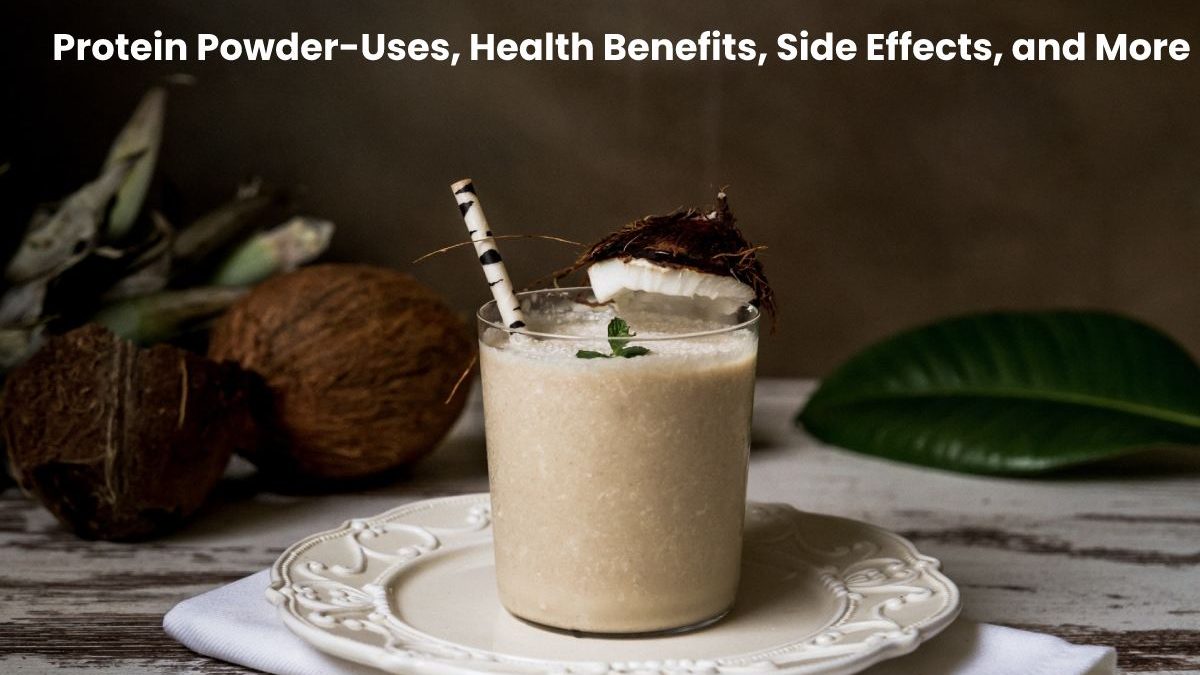Table of Contents
How Much Protein Powder Should You Take?
Protein Powder is recommended daily. Protein intake is around 55.5 g for men and 45 g for women. For most people, about 15 to 25 g of protein, whether in protein form or another source, consumed after a workout or intense exercise session is sufficient for optimal muscle protein synthesis (which is how the body accumulates muscle mass).
It recommends that athletes consume 1.2 g to 2 g of protein per kilogram of body weight, including bodybuilders. You’ll need to follow the dosage instructions on the protein powder carefully, but as a guide, one whey protein shake contains about 20g of protein.
When should you take Protein Powder?
It is suggested that you eat a meal or snack that contains simple carbohydrates, protein, and fluids after the workout. A protein powder shake is an easy way to eat a large amount of protein without preparing a meal and can also be more palatable than trying to eat high foods right after working out.
Can a Protein Shake Replace a Meal?
Protein shakes don’t offer the essential nutrients and vitamins you get from a balanced meal, so they shouldn’t replace food. You can get all the protein your system wishes from a balanced diet that includes high-protein foods. If you exercise intensely, you’ll also need carbohydrates after a workout to help your body recover.
Benefits and Disadvantages
Protein powder has become one of the most popular products in recent years, as combined with a lot of exercises and an excellent diet, it can help you see noticeable changes in your body quickly. However, it is essential to know how to take the protein powder and what foods to accompany it. And at the same time, always consider its health benefits and drawbacks before ingesting it.
Protein concentrate is a supplement made with whey whose fundamental objective is to provide the body with those missing nutrients according to its physical activity.
In some cases, the desire to achieve a toned figure leads us to duplicate efforts and hours of work to see results faster. And complementing these activities, there are also currently multiple supplements that help from food to accelerate that search for results.
Protein supplements are products that turn to when a person needs a supplement of macronutrients. Some are composed of derivatives of whey, soy, or caffeine. Protein can be varied with water, milk, or yoghurt, and you can add fruit or ice to prepare a shake or use it as an ingredient in a recipe.
Among the Benefits of Protein Powder are
- metabolism acceleration
- Promotes weight loss
- Promotes the development of muscle mass
- Controls appetite (serves as a snack between main meals)
- Strengthens the immune system
- increases serotonin levels
- decreases anxiety
It recommends consuming it before (at least 30 minutes) and after training to repair and protect muscle tissue. Unlike other supplements like protein bars, the powder is usually much easier to digest.
However, it is essential that when deciding to take protein powder, we go to a professional or nutritionist who can guide us to eat a balanced diet in which we can consume the right amounts of both food and protein to prevent our body from suffering any severe consequence.
Disadvantages of Consuming Protein Powder
The problem then arises when the diet is altered. Many people consume protein supplements excessively without professional advice to achieve a perfect body. In these cases, some of the consequences or disadvantages of consuming protein powder are:
- health problems like nausea, headaches, headaches, and bloating.
- Excess protein can overtax your kidneys and cause problems for people with existing kidney
Complications. - May increase calcium excretion.
- dehydration.
- Weight gain due to excess sugars and oils in these products.
This is why protein has become a highly complex product, recommended by many and disapproved by others. However, our recommendation is always to consult a professional to find and choose the suitable protein for your body, gender, needs, and goals.
Protein Powder Recipes
Shakes are usually the most chosen way to consume protein powder. Mainly because of its ease of preparation. However, many simple recipes allow it to include as a drink and as a meal. In the market, there are options with chocolate and vanilla flavours.
Put on your apron and get cooking! Today we show you three simple recipes that include protein powder. You can consume them at any time of the day.
- White Chocolate Cottage Cheese Protein Muffins.
- Sweet Protein Peanut Dip.
- Protein jelly with fruit.
Does it Expire?
Like all supplements, protein comes with an expiration date. Some research suggests whey protein lasts 9-19 months if stored properly. Most proteins contain additives that stay up to 2 years. While there is no quality research investigating the safety of using expired protein powder, it is not recommended.
Conclusion
Incorporating powder as a nutritional supplement can improve body composition. It also helps in the muscle function of an athlete. It provides that support of a professional accompanies it and that it is a complement to a balanced diet.
There are various protein powder options, even for vegetarians and vegans. They are easy to digest, have a pleasant taste, and incorporate into smoothies and meals. The important thing is to be informed about the product that is being consumed. In this way, we will avoid exceeding the recommended daily portions.


